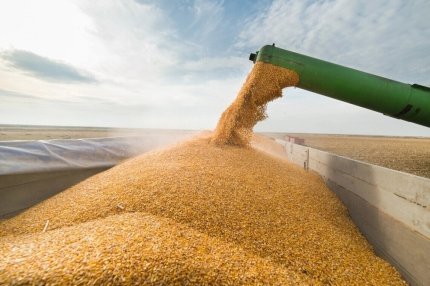Russia and its partners in the aggressor country continue to sell grain stolen from the occupied Ukrainian territories to other countries.
Points of attention
- Russia and its partners continue to sell stolen Ukrainian grain, earning almost 1 billion dollars from at least 4 million tons of grain.
- Ukraine leads diplomatic efforts to counter Russia's sale of stolen grain, prompting partner countries to take actions against the illicit trade.
- The total value of Ukrainian grain stolen by Russia is estimated to be about 6.4 billion dollars, with exporters resorting to complex evasion tactics to avoid detection.
- Iran, Syria, and Yemen are among the countries where Russia sells stolen Ukrainian grain, with Ukraine monitoring and taking legal actions against the trade.
- The Ukrainian authorities are actively fighting against the trade in stolen Ukrainian grain to minimize the negative impact on the economy and restore justice for Ukrainian farmers.
What is known about Russia's trade in stolen Ukrainian grain
According to the newspaper's journalists, Russia sells stolen Ukrainian grain through a Russian shipyard, a company linked to Iran's Revolutionary Guard, and a Crimean businessman who trades with Syria and Israel.
Another company sells grain through the UAE.
It is noted that since 2022, Russia has sold at least 4 million tons of grain and other products from the occupied Ukrainian territories to international markets, earning at least 800 million dollars.
A significant part of the stolen Ukrainian agricultural products was exported and sold by land or with the help of small vessels.

According to estimates of the Ukrainian non-profit organization Texty, the total value of Ukrainian grain stolen by Russia is about 6.4 billion dollars.
In particular, the Russian occupiers either force Ukrainian farmers in the occupied territories to sell their crops at prices lower than market prices, or sometimes confiscate them at all, threatening them with weapons.
According to the officials of the aggressor country, during the first half of 2024, 15 ships with 81 thousand tons of wheat were sent to Turkey from the occupied Mariupol.
At the same time, Ankara officially prohibits ships from entering occupied Ukrainian ports and cooperates with Kyiv.
Meanwhile, since June, prosecutor Ihor Ponochevny has been monitoring the activities of the Turkish vessel Usko MFU, which is suspected of transporting stolen Ukrainian grain from occupied Sevastopol.
During the search of the Usko MFU, border guards of Ukraine found records indicating that the vessel left Sevastopol for Turkey last November with 2,100 tons of sunflower seeds and wheat with a total estimated value of $500,000.
In July, border forces of Ukraine arrested Usko MFU.
To which other countries does Russia sell stolen Ukrainian grain?
Ukraine is also making diplomatic efforts to counter Russia's sale of stolen grain.
So, in the last two years, Egypt, Israel and Lebanon either canceled the shipment of cargoes or stopped the purchase of grain cargoes.
According to the representative of the Ministry of Foreign Affairs of Ukraine, Russia is currently selling stolen Ukrainian grain to Lebanon.
Egypt refused some supplies of grain from the territories of Ukraine occupied by Russia.
Iran and Syria have declared their refusal to comply with sanctions.
Iran supplied the Kremlin with lethal weapons that enhanced Russia's ability to strike military and civilian targets in exchange for grain.
SeaKrime analyst Kateryna Yaresko notes that Iran buys Ukrainian barley from Russia, which is exported from the occupied Crimea, at $140 per ton, which is 34% lower than market prices.
Yemen became another new market for stolen Ukrainian grain exported by Russia through Crimea.
In June, the Russian-controlled ship Zafar delivered grain to the Houthi-controlled port of Al-Salif in Yemen, according to shipping records.
As Kiev tightens the crackdown, exporters are resorting to increasingly sophisticated evasion tactics, such as shipping grain to Russia and mixing it with legitimate products before resale. The Ukrainian authorities are trying their best to keep up.








